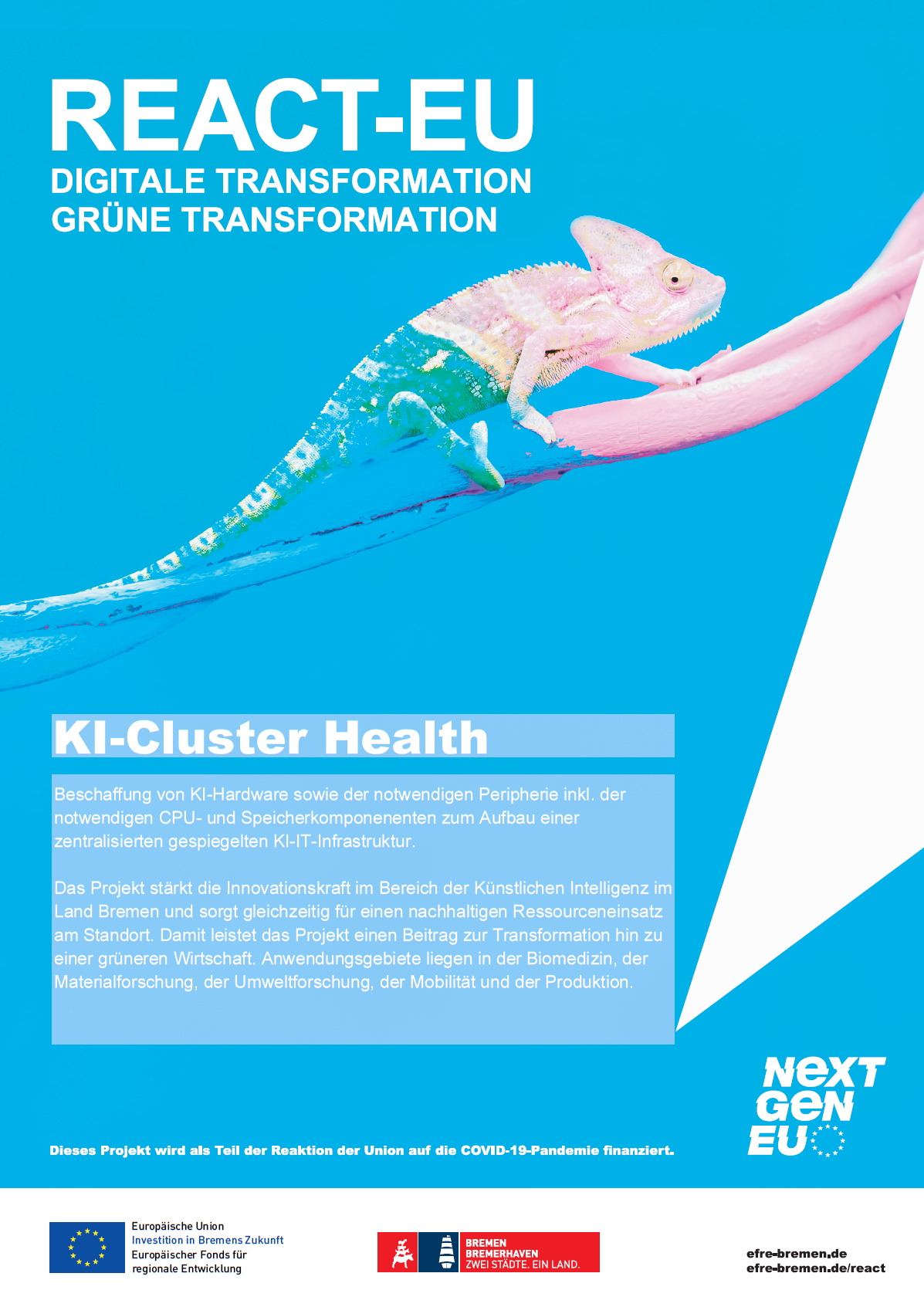
AI-Cluster Health

Modern Deep Learning methods allow AI models to be trained to automate cognitive tasks in many application areas, including digital medicine. This is a small technical revolution, because for the first time, some very demanding tasks can be meaningfully supported by computers. But even in many cases where good solutions already existed, these new AI methods again significantly improve the state of the art.
However, the new possibilities are also accompanied by new requirements. Many research institutes such as Fraunhofer MEVIS have therefore acquired special hardware and operate computationally powerful clusters in which elaborate experiments can often be accelerated by a factor of more than one hundred using suitable GPUs. The rapid development and validation of new AI algorithms essentially depends on the availability of such a cluster. It is a characteristic of resources in such high-performance computing centers that they are not permanently operated at full load, but show a strongly fluctuating utilization depending on the project phase.
The ERDF-funded project "KI-Cluster Health" (AI-Cluster Health) therefore envisages the creation of a central infrastructure that will also be made available to other AI institutions at the site. The development of data-driven algorithms is to benefit from this specialized computing center, which Fraunhofer MEVIS will establish in the Technology Park of the University of Bremen. The equipment of the computing cluster with current NVidia-A100-GPUs shall especially allow the training of the particularly performance-hungry AI models. The creation of central resources is more sustainable than equipping many individual workstations with suitable hardware and can compensate for the fluctuating workloads of many users.
 Fraunhofer Institute for Digital Medicine MEVIS
Fraunhofer Institute for Digital Medicine MEVIS